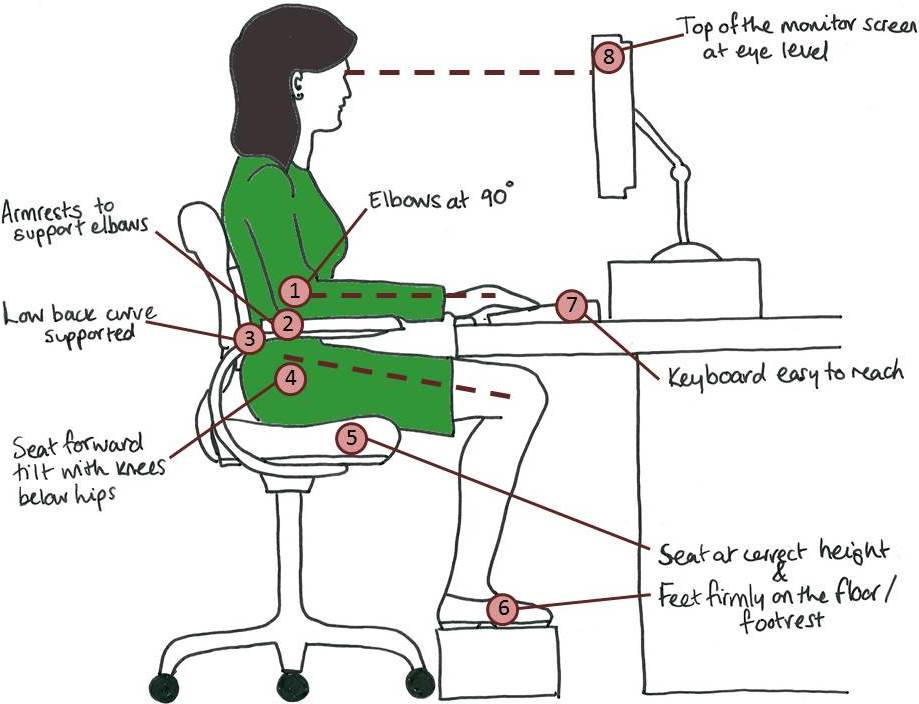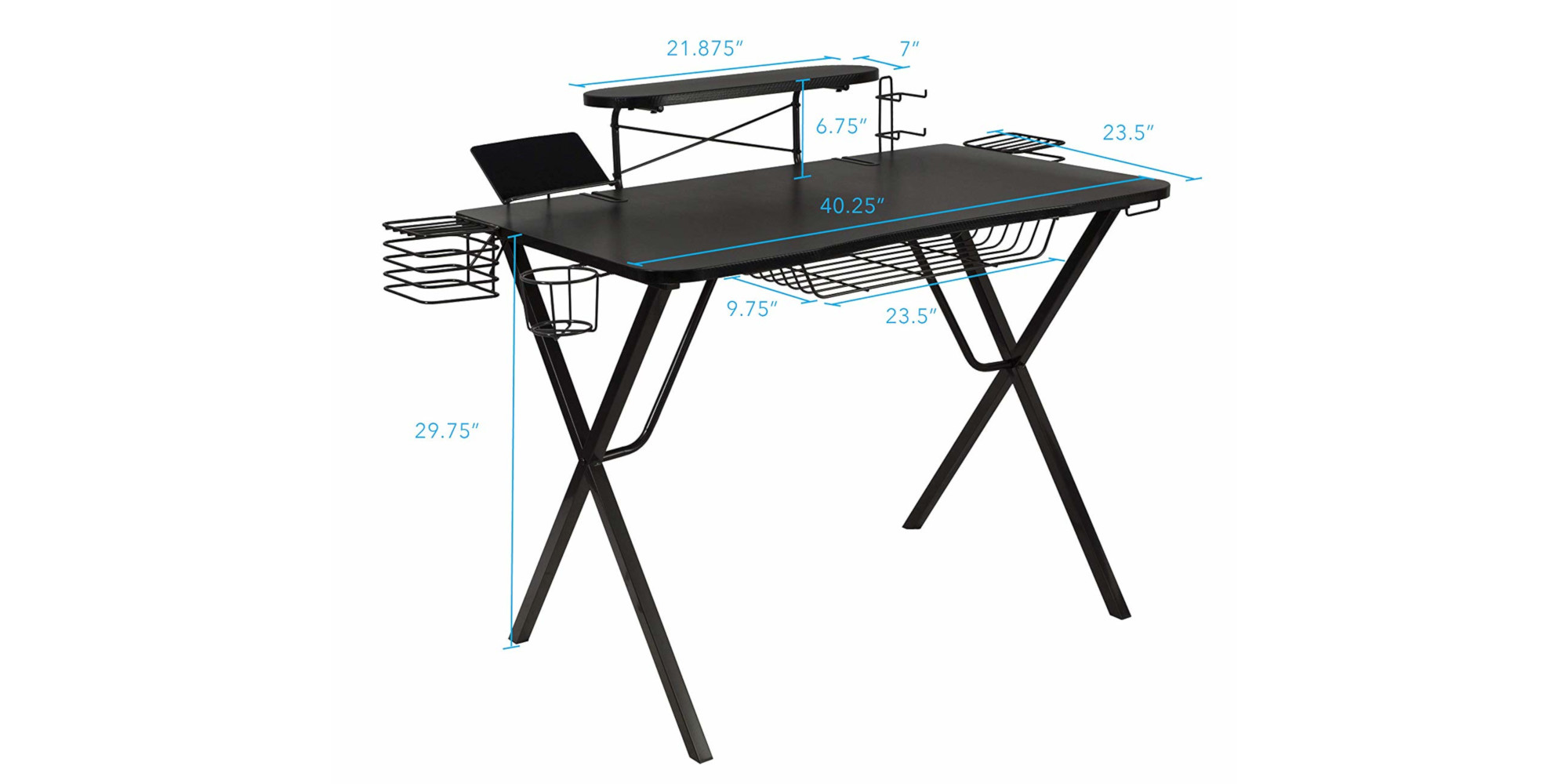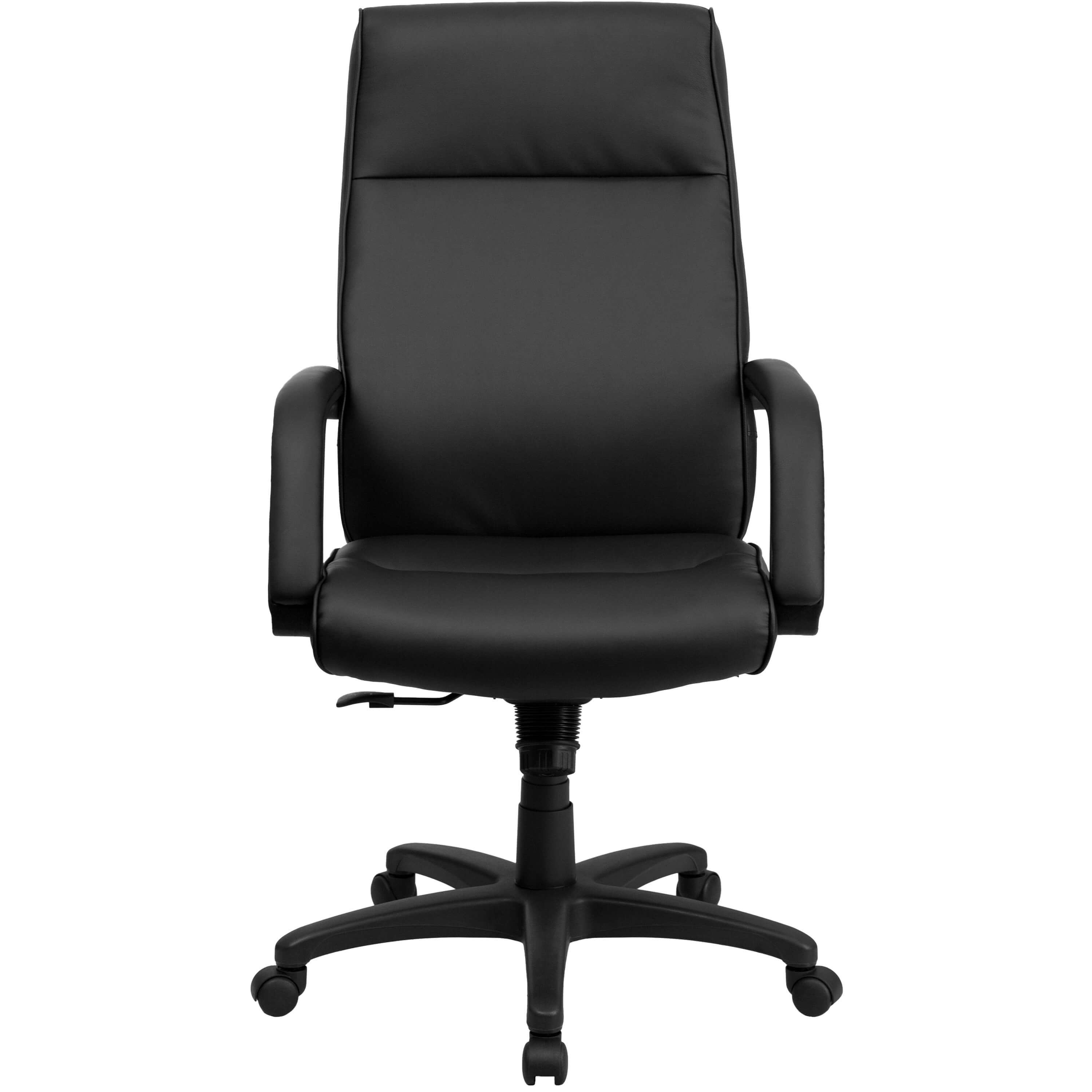This means your elbows should be in a 90 degree position from the floor. Carrying out dse assessments and recording all their findings.
How To Set Up Your Desk For Good Posture, Getting out of your chair and moving regularly is important to avoid aches and pains and to improve your health and wellbeing. How to correctly set up your workspace.

The typical desk posture that every office worker is familiar with includes the shoulders and neck hunched forward. Using a sit/stand desk is a simple way to change postures when you’re doing computer work. Sitting in a chair that’s too low positions your knees above your hips, while sitting perched higher up positions your hips significantly higher than your knees. Obviously, this occurs due to fatigue and/or due to the computer’s placement along with its accessories (i.e.
Pull your chair up to the desk so you�re close to the keyboard and be sure to keep your head elevated and chin up, even if you have to look down to see the screen.
By following these tips we can help you set up your workspace to improve posture and provide the correct support. Sitting at a desk all day? The typical desk posture that every office worker is familiar with includes the shoulders and neck hunched forward. Sitting in a chair that’s too low positions your knees above your hips, while sitting perched higher up positions your hips significantly higher than your knees. If your desk has a hard edge, pad the edge or use a wrist rest. Under the desk, make sure there�s clearance for your knees, thighs and feet.
 Source: pinterest.com
Source: pinterest.com
Adjust your chair height so that your feet are flat and your knees are at right angles. This position helps to keep a neutral spine position. Obviously, this occurs due to fatigue and/or due to the computer’s placement along with its accessories (i.e. To begin, set your standing desk at about elbow height. Ergonomics expert explains how to set up.
 Source: drreimer.com
Source: drreimer.com
By following these tips we can help you set up your workspace to improve posture and provide the correct support. Providing information and training to workers in the proper use of dse and good posture. How to use standing desk. If your desk has a hard edge, pad the edge or use a wrist rest. A standard keyboard is typically.
 Source: pinterest.fr
Source: pinterest.fr
Use a footrest to support your feet as needed. Work in this way to maintain good posture. If you have two monitors and use them both the same, position them with the same angle toward your face. Raise your desk/ keyboard to a height that also allows you to sit with your legs correctly positioned (e.g. How to correctly set.
 Source: pinterest.com.au
Source: pinterest.com.au
Ergonomics expert explains how to set up your desk | wsj. For more tips on setting up your desk, read our guide to sitting with good posture. Every hour, leave your desk to walk around to get your blood flowing and muscles loose. If your desk has a hard edge, pad the edge or use a wrist rest. When setting.
 Source: muuv360.com
Source: muuv360.com
Obviously, this occurs due to fatigue and/or due to the computer’s placement along with its accessories (i.e. This position helps to keep a neutral spine position. When sitting at your desk, try to keep your knees almost aligned with your hips. Bad posture starting to creep in? Pull your chair up to the desk so you�re close to the keyboard.
 Source: ergonomictrends.com
Source: ergonomictrends.com
Bad posture starting to creep in? How to correctly set up your workspace. A great deal of the responsibility lies with you, the dse user, of course. Keep your hips and knees at 90 degrees. Adjust your chair height so that your feet are flat and your knees are at right angles.
 Source: lornaroseosteopathy.com
Source: lornaroseosteopathy.com
Are you working or studying from home? It’s important that you set up your workstation ergonomically to make yourself more comfortable and avoid back and wrist pain. Adjust chair to achieve optimal lower body posture. The typical desk posture that every office worker is familiar with includes the shoulders and neck hunched forward. Providing information and training to workers in.
 Source: rhymebiz.com
Source: rhymebiz.com
Bend your elbows 90 degrees. Get up at least once every 30 minutes to run around the room, do jumping jacks, or even stand up to help them refocus and maintain proper posture for longer durations if your child is experiencing pain with sitting during the day despite these adjustments, the issue may be larger than just adjusting their desk.
 Source: pinterest.com
Source: pinterest.com
When setting up an ergonomically workstation, it’s important to have everything in the correct place. Pull your chair up to the desk so you�re close to the keyboard and be sure to keep your head elevated and chin up, even if you have to look down to see the screen. Your shoulders should be relaxed. If the desk is too.
 Source: reachyours.com
Source: reachyours.com
To avoid it and retain the wrists straight, a keyboard tray will help. Bend your elbows 90 degrees. Ergonomics expert explains how to set up your desk | wsj. If you can adjust your desk height, make sure your wrists are flat when you’re typing on your keyboard. A huge component of that is setting up your chair, desk, and.
 Source: ultracarepro.in
Source: ultracarepro.in
Your shoulders should be relaxed. To sit at a computer with good posture, keep your back straight, put both feet flat on the ground, and keep your arms tucked near your sides. Use different desk, put desk raisers under desk legs). Pull your chair up to the desk so you�re close to the keyboard and be sure to keep your.
 Source: healthandbalance.com.au
Source: healthandbalance.com.au
And this guide to ergonomics at your desk will help you to improve your posture all day long! Set up your workplace for good posture. Lift or lower the standing desk. Learning how to set up your desk. Your desk should ideally let you type on a keyboard with your arms and hands roughly parallel to the floor, your feet.
 Source: ipmot.ca
Source: ipmot.ca
Bend your elbows at a 90 degrees angle, keeping your neck neutral and your wrists straight in front of you. When sitting at your desk, try to keep your knees almost aligned with your hips. You should have clear space under the desk to comfortably stretch out your legs and avoid sharp desk corners. Top of screen level with eyes,.
 Source: chandlerpt.net
Source: chandlerpt.net
To sit at a computer with good posture, keep your back straight, put both feet flat on the ground, and keep your arms tucked near your sides. By following these tips we can help you set up your workspace to improve posture and provide the correct support. Work in this way to maintain good posture. Use different desk, put desk.
 Source: blog.therapydia.com
Source: blog.therapydia.com
Using a sit/stand desk is a simple way to change postures when you’re doing computer work. If your desk has a hard edge, pad the edge or use a wrist rest. Your desk should ideally let you type on a keyboard with your arms and hands roughly parallel to the floor, your feet flat on the floor, and your legs.
 Source: pakenhamosteopathy.com.au
Source: pakenhamosteopathy.com.au
Getting out of your chair and moving regularly is important to avoid aches and pains and to improve your health and wellbeing. To begin, set your standing desk at about elbow height. Use a footrest to support your feet as needed. Lift or lower the standing desk. Pull your chair up to the desk so you�re close to the keyboard.
 Source: ergonomictrends.com
Source: ergonomictrends.com
A huge component of that is setting up your chair, desk, and computer to make sure your body stays in a healthy posture. Your desk should ideally let you type on a keyboard with your arms and hands roughly parallel to the floor, your feet flat on the floor, and your legs fitting comfortably under the desk when sitting (you.

For more tips on setting up your desk, read our guide to sitting with good posture. As a guide, the average 5’11” (180 cm) person would have their. You should have clear space under the desk to comfortably stretch out your legs and avoid sharp desk corners. Sitting in a chair that’s too low positions your knees above your hips,.
 Source: chatelaine.com
Source: chatelaine.com
Use a footrest to support your feet as needed. Adjust your chair height so that your feet are flat and your knees are at right angles. Check out this short video to see if your desk is configured correctly for optimal ergonomics. Keep your mouse and keyboard as close together as possible so you don’t need to stretch for them.
 Source: totalbalancephysio.com.au
Source: totalbalancephysio.com.au
Keep your mouse and keyboard as close together as possible so you don’t need to stretch for them You can do simple stretches at your desk, such as stretching your neck, shoulders, arms, and legs. Are you working or studying from home? You should have clear space under the desk to comfortably stretch out your legs and avoid sharp desk.
 Source: active4lifept.com
Source: active4lifept.com
Place the other monitors on the left or right side of the main monitor with equal angle and in a circular manner: Adjust your chair height so that your feet are flat and your knees are at right angles. Keep your mouse and keyboard as close together as possible so you don’t need to stretch for them Dse assessors can’t.
 Source: share.upmc.com
Source: share.upmc.com
If you want to ensure your body does not suffer the consequences of a sitting job, set up your workplace to support a healthy body and good posture. Using a sit/stand desk is a simple way to change postures when you’re doing computer work. Use a footrest to support your feet as needed. Under the desk, make sure there�s clearance.
 Source: webstockreview.net
Source: webstockreview.net
Raise your desk/ keyboard to a height that also allows you to sit with your legs correctly positioned (e.g. Place the other monitors on the left or right side of the main monitor with equal angle and in a circular manner: The typical desk posture that every office worker is familiar with includes the shoulders and neck hunched forward. If.
 Source: hosmerchiropractic.com
Source: hosmerchiropractic.com
One important piece of advice in that article comes. Work in this way to maintain good posture. This means your elbows should be in a 90 degree position from the floor. Raise your desk/ keyboard to a height that also allows you to sit with your legs correctly positioned (e.g. Pull your chair up to the desk so you�re close.
 Source: pinterest.com
Source: pinterest.com
Work in this way to maintain good posture. Sitting at a desk all day? Carrying out dse assessments and recording all their findings. If the desk is too high and can�t be adjusted, raise your chair. Your shoulders should be relaxed.








